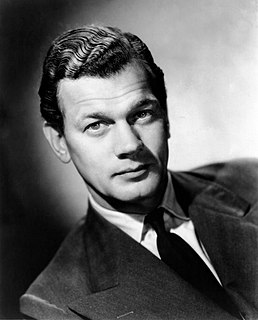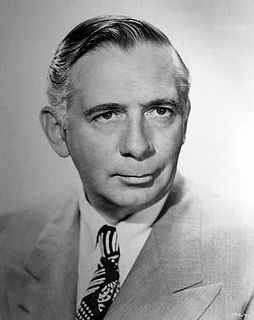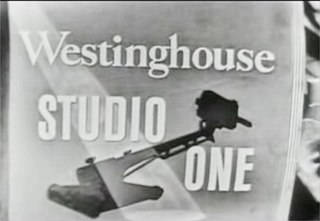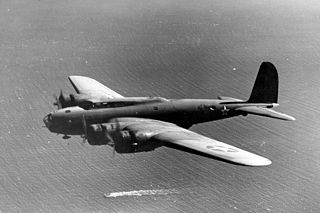Related Research Articles

Joseph Cheshire Cotten Jr. was an American film, stage, radio and television actor. Cotten achieved prominence on Broadway, starring in the original stage productions of The Philadelphia Story and Sabrina Fair.

George Orson Welles was an American director, actor, screenwriter, and producer who is remembered for his innovative work in radio, theatre and film. He is considered to be among the greatest and most influential filmmakers of all time.

Simon Phillip Hugh Callow is an English actor, director, and writer.

Rita Hayworth was an American actress, dancer, and producer. She achieved fame during the 1940s as one of the era's top stars, appearing in 61 films over 37 years. The press coined the term "The Love Goddess" to describe Hayworth after she had become the most glamorous screen idol of the 1940s. She was the top pin-up girl for GIs during World War II.

The Campbell Playhouse (1938–1940) is a live CBS radio drama series directed by and starring Orson Welles. Produced by Welles and John Houseman, it was a sponsored continuation of The Mercury Theatre on the Air. The series offered hour-long adaptations of classic plays and novels, as well as adaptations of popular motion pictures.

Lux Radio Theatre, sometimes spelled Lux Radio Theater, a classic radio anthology series, was broadcast on the NBC Blue Network (1934–35) ; CBS Radio network (1935–54), and NBC Radio (1954–55). Initially, the series adapted Broadway plays during its first two seasons before it began adapting films. These hour-long radio programs were performed live before studio audiences. The series became the most popular dramatic anthology series on radio, broadcast for more than 20 years and continued on television as the Lux Video Theatre through most of the 1950s. The primary sponsor of the show was Unilever through its Lux Soap brand.

The United States Steel Hour is an anthology series which brought hour long dramas to television from 1953 to 1963. The television series and the radio program that preceded it were both sponsored by the United States Steel Corporation.

Ray Bidwell Collins was an American character actor in stock and Broadway theatre, radio, films, and television. With 900 stage roles to his credit, he became one of the most successful actors in the developing field of radio drama. A friend and associate of Orson Welles for many years, Collins went to Hollywood with the Mercury Theatre company and made his feature-film debut in Citizen Kane (1941), as Kane's ruthless political rival. Collins appeared in more than 75 films and had one of his best-remembered roles on television, as Los Angeles homicide detective Lieutenant Arthur Tragg in the CBS-TV series Perry Mason.

Studio One is an American anthology drama television series that was adapted to from a radio series. It was created in 1947 by Canadian director Fletcher Markle, who came to CBS from the CBC. It premiered on November 7, 1948 and ended on September 29, 1958, with a total of 467 episodes over the course of 10 seasons.

Academy Award is a CBS radio anthology series, which presented 30-minute adaptations of plays, novels, or films.

The Fountain of Youth is a 1956 television pilot directed by Orson Welles for a proposed Desilu Productions anthology series that was never produced. Based on a short story by John Collier, the short film narrated onscreen by Welles stars Dan Tobin, Joi Lansing and Rick Jason. The Fountain of Youth was televised once, on September 16, 1958, on NBC's Colgate Theatre. It received the prestigious Peabody Award for 1958, the only unsold television pilot ever to be so honored.

The Hitch-Hiker is a radio play written by Lucille Fletcher. It was first presented on the November 17, 1941, broadcast of The Orson Welles Show on CBS Radio, featuring a score written and conducted by Bernard Herrmann, Fletcher's first husband. Welles performed The Hitch-Hiker four times on radio, and the play was adapted for a notable 1960 episode of the television series The Twilight Zone.
The Mercury Wonder Show for Service Men was a 1943 magic-and-variety stage show by the Mercury Theatre, produced by Orson Welles and Joseph Cotten as a morale-boosting entertainment for US soldiers in World War II. Directed by Welles, the show starred Welles, Cotten, Agnes Moorehead and Rita Hayworth, whose part was later filled by Marlene Dietrich. Jean Gabin also worked on the show backstage, as a propman. The show ran to 150 minutes.

The Orson Welles Show (1941–42), also known as The Orson Welles Theater, Orson Welles and his Mercury Theater and the Lady Esther Show, was a live CBS Radio series produced, directed and hosted by Orson Welles. Broadcast Mondays at 10 p.m. ET, it made its debut September 15, 1941. Its last broadcast was February 2, 1942.

Hello Americans (1942–43) is a CBS Radio series produced, directed and hosted by Orson Welles. Created to promote inter-American understanding and friendship during World War II, the series aired Sundays at 8 p.m. ET beginning November 15, 1942. Its last broadcast was January 31, 1943. Sponsored by the Office of the Coordinator of Inter-American Affairs, the drama series featured many of the actors from Welles's Mercury Theatre repertory ensemble.

Ceiling Unlimited (1942–1944) is a CBS radio series created by Orson Welles and sponsored by the Lockheed-Vega Corporation. The program was conceived to glorify the aviation industry and dramatize its role in World War II.

This is a comprehensive listing of the radio programs made by Orson Welles. Welles was often uncredited for his work, particularly in the years 1934–1937, and he apparently kept no record of his broadcasts.
Radio is what I love most of all. The wonderful excitement of what could happen in live radio, when everything that could go wrong did go wrong. I was making a couple of thousand a week, scampering in ambulances from studio to studio, and committing much of what I made to support the Mercury. I wouldn't want to return to those frenetic 20-hour working day years, but I miss them because they are so irredeemably gone.
The Cresta Blanca Hollywood Players was a dramatic anthology series on radio in the United States. It was broadcast on CBS September 3, 1946 – February 26, 1947.

"No Tabuleiro da Baiana" is a samba written in 1936 by Ary Barroso and recorded by Carmen Miranda.

Orson Welles Commentaries (1945–46) is an ABC radio series produced and directed by Orson Welles. Featuring commentary by Welles, with reminiscences and readings from literature, the 15-minute weekly program aired Sunday afternoons at 1:15 p.m. ET beginning September 16, 1945. Lear Radio sponsored the program through the end of June 1946 when it failed to find a larger audience. The series was continued by ABC as a sustaining show through October 6, 1946. Orson Welles Commentaries was the last of Welles's own radio shows.
References
- 1 2 3 http://www.digitaldeliftp.com/DigitalDeliToo/dd2jb-This-Is-My-Best.html The Definitive This Is My Best Radio Log
- ↑ Simon Callow, Orson Welles: Hello Americans (Jonathan Cape, London, 2006) p.243
- ↑ Simon Callow, Orson Welles: Hello Americans (Jonathan Cape, London, 2006) pp.243-4
- ↑ http://www.all-otr.com/T018_ThisIsMyBest.htm Episode synopses of This Is My Best
- ↑ http://www.originaloldradio.com/cddh1677.html Log of Orson Welles radio episodes